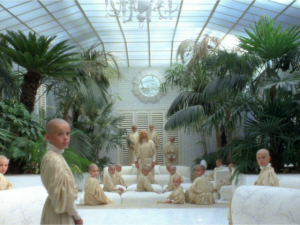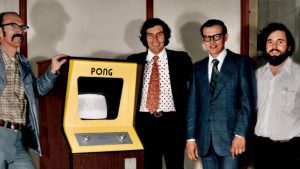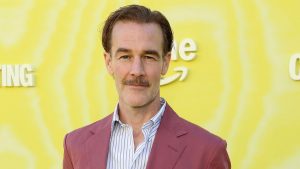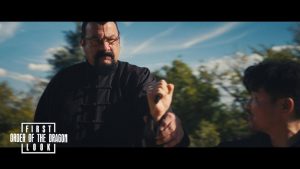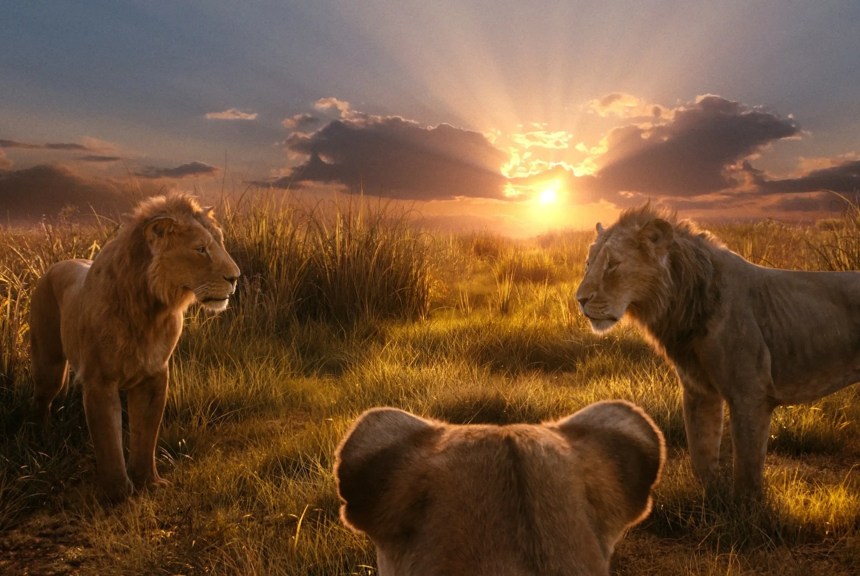
ORPHAN. OUTSIDER. KING.
In 2019, Walt Disney Studios released The Lion King, a photorealistic animated remake of their beloved 1994 classic. Directed by Jon Favreau, the film featured an all-star voice cast, including Donald Glover, Seth Rogen, Billy Eichner, Chiwetel Ejiofor, Beyoncé Knowles-Carter, and James Earl Jones. It retold the iconic story of Simba, a young lion forced to embrace his destiny as king after the tragic murder of his father, Mufasa, at the hands of his uncle, Scar. Following Disney’s ongoing trend of reimagining their animated classics, the 2019 version of The Lion King premiered on July 19th to mixed reviews. While critics and audiences praised the film’s impressive visuals and solid voice performances, many criticized it for its near shot-for-shot replication of the original and lack of creative risk. The remake, for all its technological prowess, was seen as a hollow retread that failed to recapture the soul of the 1994 masterpiece. Nevertheless, the film was a massive box office success, grossing $1.6 billion globally and breaking multiple records. It also earned several award nominations during that year’s awards circuit. Now, five years later, Disney and director Barry Jenkins returns to the Pride Lands with Mufasa: The Lion King, a prequel spin-off exploring the origins of the iconic lion king. Does this new chapter justify its existence with meaningful storytelling, or is it yet another soulless attempt by Disney to capitalize on nostalgia?
THE STORY
Years have passed by in the Pride Lands, with Simba (Donald Glover) ruling the vast savannah realm with peace and prosperity. As he and Nala (Beyonce Knowles-Carter) await the birth of their new cub, their daughter Kiara (Blue Ivy Carter) is left behind, with Simba’s loyal companions Timon (Billy Eichner) and Pumbaa (Seth Rogen) trying to keep the young lioness occupied. Enter Rafiki (John Kani), who provides a story to pass the time, sharing to everyone the tale of Mufasa and how he became king of the pride lands many years ago. As a young lion, Mufasa (Aaron Pierre) is raised by his well-loving parents, Masego (Keith David) and Afia (Anika Noni Rose), who believe in finding the paradise oasis known as Miele. However, when disaster suddenly strike, Mufasa is separated from his parental figures, believing them to be dead and left orphaned. He is founded by Taka (Kelvin Harrison Jr.), a proud lion who is quite eager to take the throne, being groomed for the far-off day by his father, Obasi (Lennie James). However, Mufasa, even as a “orphaned”, has a special skills and his unique abilities are put to the test when “The Outsiders”, a rogue collection of white lions, seek to destroy all rival clans, putting their leader Kiros (Mads Mikkelsen) to be the true lion king. Escaping from danger and on the run, Mufasa and Taka, along with new companions from the lioness Sarabi (Tiffany Boone), the winged hornbill Zazu (Preston Nyman), and the off-beat mandrill monkey Rafiki (Kagiso Lediga), dare to cross a dangerous land, looking for the safety of long lost province of Miele. With Kiros and his clan pursuing them, Mufasa and his friends must band together on this perilous journey, one that will define who he is and what he will one day become.
THE GOOD / THE BAD
There’s no denying that 2019’s The Lion King was a mixed bag. Like many, I was initially excited about the remake. The original 1994 film remains one of my all-time favorites—not just from Disney’s “Renaissance” era, but across all animated cinema. It was a beautifully crafted masterpiece that left an indelible mark on my childhood and has continued to resonate for decades.
I won’t delve too deeply into the original film here (you can check out my cinematic flashback review for that), but suffice it to say that my love for the original made me more critical of the 2019 remake. While there was an undeniable spectacle in seeing familiar characters rendered with photorealistic CGI and the sweeping landscapes brought to life in stunning detail, the film ultimately felt redundant. It followed the original too closely, almost beat-for-beat and shot-for-shot, and added very little that felt new or inspired.
The attempt to recreate the emotional resonance of the original was stifled by the film’s hyperrealistic aesthetic. The characters, while visually impressive, lacked expressive range in their facial animations, making it difficult to connect emotionally. The result was a technically dazzling film that failed to capture the heart and soul that made the 1994 version timeless. For all its visual beauty, the 2019 remake ended up being one of my least favorite entries in Disney’s ongoing wave of live-action retellings.
Naturally, I approached Mufasa: The Lion King with cautious optimism. On the one hand, the 2019 remake had its issues. On the other, its massive box office success made it clear that Disney had every intention of returning to the Pride Lands. Instead of opting for a direct sequel in the vein of The Lion King II: Simba’s Pride, the studio chose a different path, a prequel exploring the untold story of Mufasa’s rise to power. It was an intriguing idea, especially considering how little of Mufasa’s past has been explored in previous iterations.
The prospect of diving into Mufasa’s origin, and perhaps even seeing the genesis of his rivalry with Scar (then Taka), offered genuine narrative potential. The concept alone piqued my curiosity, even if lingering doubts from the 2019 film remained.
As marketing ramped up, trailers and promotional material painted a promising picture. Visually, the film seemed to take some strides in refining the animation, character models appeared more expressive, and the storytelling scope looked more expansive and adventurous. With many of the voice cast from the 2019 film returning, it became clear the movie would employ a flashback-style narrative framed by Rafiki’s storytelling.
By the time Mufasa: The Lion King was released on December 20th, 2024, I was intrigued enough to check it out, though my post-holiday schedule delayed my viewing by a week or so. With other reviews to wrap up, this one had to wait its turn. But now, as I wind down my backlog, I’m ready to share my thoughts. And, to my surprise, I genuinely enjoyed it.
While it isn’t without its flaws, Mufasa: The Lion King manages to rise above its predecessor in both narrative ambition and emotional depth. It offers a welcome expansion of the mythos and breathes fresh life into the franchise. Yes, there are still some rough patches in its execution, but the film succeeds where it counts, by telling a story that feels worth telling.
Mufasa: The Lion King is directed by Barry Jenkins, whose previous directorial work includes acclaimed projects like Moonlight, If Beale Street Could Talk, and The Underground Railroad. Given his background in telling emotionally resonant stories that explore African American culture and identity, often with depth, nuance, and poetic intensity, Jenkins initially seems like a somewhat unconventional choice to helm a Disney feature. After all, the Lion King mythos, encompassing the original film, its sequels, prequels, and spin-offs, is primarily known as a children’s franchise, one steeped in family-friendly themes and broadly accessible storytelling.
That said, the original Lion King film was itself a layered narrative with strong Shakespearean overtones, dealing with betrayal, legacy, and moral responsibility. So perhaps it’s not such a stretch to bring on a filmmaker of Jenkins’ caliber, especially one with a gift for character-driven drama and visual lyricism. While it may seem unorthodox at first glance, Jenkins proves to be a rather inspired choice, infusing Mufasa with a sense of emotional weight and cinematic texture that helps it rise above its predecessor. He brings the gravitas that was sorely missing in the 2019 remake and provides the titular character with the emotional heft his legacy deserves.
To his credit, Jenkins doesn’t shy away from embracing the inherent magic and heart of Disney. He brings just enough artistic flair to give Mufasa its own identity while still playing within the sandbox of a family film. The screenplay, penned by Jeff Nathanson (who also wrote the 2019 remake), finally feels like it’s working with new material rather than rehashing old territory. It allows the audience to peel back the layers of Mufasa’s mythic presence, reimagining him not just as a regal, all-knowing king, but as a once-orphaned outsider, a cub who had to rise above hardship and forge his destiny.
This decision to demystify Mufasa is admittedly a gamble. Some may have preferred his past remain shrouded in legend. But I actually found this deeper exploration refreshing. It gives the story more emotional stakes and presents a meaningful arc that enriches the overall lore. Jenkins has a wealth of material to work with here, and he brings it to life with moments of striking drama, poignant introspection, and, yes, a touch of that signature Disney magic.
Importantly, Mufasa doesn’t forget who its audience is. Jenkins maintains a strong balance between drama and levity, ensuring that the film remains accessible and enjoyable for families. There’s a healthy dose of comedy, lighthearted banter, and character-driven humor throughout. While there are a few darker thematic elements, which may be intense for the youngest viewers, they’re never overbearing. Instead, they’re woven naturally into the fabric of the story and are well within the tone of the broader Lion King universe. The film is still very much a Disney movie at heart, just one that happens to carry a bit more thematic weight.
Perhaps the most compelling thread the film explores is the relationship between Mufasa and Taka (the lion who will one day become Scar). Their brotherly bond, the early stages of their camaraderie, and the gradual unraveling of their friendship are central to the narrative. It’s a fascinating look at how two very different lions, one idealistic and honorable, the other ambitious and embittered, navigate the complexities of their youth and the harsh realities of their world. We’ve always known the outcome from the original Lion King, but Mufasa provides the “how” and the “why.” While a few of these beats may come across as a bit clunky in execution, the emotional trajectory of their relationship feels authentic and well-earned.
All in all, I think Jenkins did a commendable job with Mufasa: The Lion King. The film doesn’t just echo what came before, it dares to dig deeper and chart its own course, giving the story of Simba’s father the dramatic richness it deserves. Yes, there are a few predictable or overly familiar story beats along the way, but Jenkins elevates the material with visual flair and heartfelt direction. It’s an engaging and well-executed prequel that proves to be a worthy addition to The Lion King legacy.
From a presentation standpoint, Mufasa marks a clear improvement over its 2019 predecessor, particularly in its visual storytelling and overall production design. Most notably, the film’s visual effects stand out as a significant upgrade. While the 2019 Lion King was praised for its photorealistic visuals, many critics and audiences found its hyper-realistic animal characters emotionally hollow, lacking the expressive nuance needed to carry dramatic or comedic moments. Mufasa, thankfully, addresses this issue with more vivid and expressive facial animations. The characters feel far more alive, lending weight and emotional resonance to key scenes in ways that their predecessor struggled to achieve.
Beyond the characters, the film’s setting and visual backgrounds offer a more expansive and adventurous experience. From sun-scorched savannahs and lush jungles to unexpected snowy mountaintops, Mufasa doesn’t just rehash familiar locations, it expands the world. Much credit goes to production designer Mark Friedberg and the entire art direction team, who infused the film with fresh, imaginative visuals. Cinematographer James Laxton enhances this vision with sweeping camera work that elevates both quiet character moments and grand cinematic sequences. Meanwhile, Dave Metzger’s musical score blends new compositions with Hans Zimmer’s iconic themes from the 1994 original, resulting in an emotionally rich and nostalgic soundtrack.
However, the film is not without its shortcomings. While the narrative is engaging, it could have benefitted from a slower pace and deeper exploration in key areas. Certain plot points and character developments feel rushed, as if the film is eager to push through its emotional beats without letting them breathe. This pacing issue seems to stem from a combination of Barry Jenkins’ direction and the screenplay’s structure. While the foundation is strong, the story could have been enhanced with a few more character-driven moments or additional challenges to give the emotional arcs more depth.
Perhaps the film’s weakest element is its musical numbers. While songs often serve as effective narrative tools in Disney films, those featured in Mufasa feel uninspired and forgettable. While they are competently performed and melodically pleasant, songs like “I’ve Always Wanted a Brother,” “Bye Bye,” “We Got Together,” and “Brother Betrayed” lack the memorability and emotional punch of Elton John and Tim Rice’s classics from the 1994 film. The new songs, written by Lin-Manuel Miranda, carry his distinctive modern flair, which may appeal to some viewers, but ultimately feel out of step with the film’s tone and fail to reach the timeless quality of past Disney hits. In fact, one might argue that the story would have been stronger without them, as their inclusion occasionally distracts from rather than enhances the narrative.
Despite these musical missteps, the voice cast delivers strong performances that elevate the material. Aaron Pierre brings youthful gravitas to the role of young Mufasa, avoiding imitation of James Earl Jones while still capturing the character’s noble essence. Pierre’s portrayal is confident and resonant, making Mufasa’s origin story compelling in both emotional and cinematic terms. Kelvin Harrison Jr. matches him beat for beat as Taka, the lion who would become Scar. Harrison infuses Taka with both charisma and an undercurrent of bitterness, portraying a complex character whose descent into villainy is both tragic and believable.
Supporting performances are equally commendable. Braelyn Rankins and Theo Somolu provide solid voice work as young Mufasa and Taka, respectively. Mads Mikkelsen, meanwhile, is perfectly cast as the film’s antagonist, Kiros, a cold, commanding leader of the Outsiders. Mikkelsen’s voice oozes menace and restraint, making Kiros a memorable if somewhat one-note villain. While not as intricately written as Scar, Kiros serves his narrative purpose well as a straightforward, power-hungry threat.
Additional standout performances include Tiffany Boone as young Sarabi, Kagiso Lediga as a younger, eccentric Rafiki, and Preston Nyman as young Zazu, all of whom capture the spirit of their 2019 counterparts while adding new layers. Each character contributes meaningfully to the film’s ensemble and helps round out the younger cast in a satisfying way.
The extended cast features a mix of new face characters. Thandiwe Newton and Lennie James voice Eshe and Obasi, Taka’s biological parents, while Anika Noni Rose and Keith David portray Mufasa’s biological parents, Afia and Masego. Other notable additions include Joanna Jones and Folake Olowofoyeku as Kiros’ sisters, Abdul Salis as Chigaru, and Dominique Jennings as Sarafina. Each performer brings solid energy to their role, adding texture to the film’s expanding lore, even if some have more screen time than others.
Alongside the new voice cast, several returning actors from 2019’s The Lion King reprise their roles, helping to bridge the gap between the original story and this prequel. Among them, the standout performances come from Simba’s loyal companions Timon and Pumbaa, and the wise mandrill Rafiki. Once again voiced by Billy Eichner and Seth Rogen, and John Kani, this trio serves as both commentary and comic relief throughout the film, frequently intercutting the main narrative with humorous asides.
These moments echo the playful, meta-style narration seen in The Lion King 1½, with Timon and Pumbaa breaking the fourth wall to comment on the unfolding events. While some may view these interludes as a bit “shoehorned” into the film, I found them to be a charming and effective way to keep the tone light without undercutting the story’s emotional weight. Eichner and Rogen once again prove to be a dynamic comedic duo, delivering plenty of laughs while still allowing the film’s more serious moments to breathe. Meanwhile, Kani brings gravitas and warmth to Rafiki, who acts as the film’s central narrator, grounding the story with wisdom and reverence.
The only new character to join the returning cast is Kiara—Simba and Nala’s daughter, Mufasa and Sarabi’s granddaughter, and the heir apparent to the Pride Lands—voiced by Beyoncé’s daughter, Blue Ivy Carter. Much like the present-day characters who frame the film’s narrative, Kiara serves as a narrative bookend, with a few brief but meaningful snippets of dialogue interspersed throughout the main storyline. As a character already established in The Lion King II: Simba’s Pride, her inclusion helps bridge the gap between the familiar stories, acting as a subtle interlude that ties the timelines together. As for Blue Ivy’s performance, she does a commendable job bringing a sense of youthful sincerity to Kiara, adding another layer of continuity and charm to the film.
Other returning voices from the 2019 remake, such as Donald Glover (Simba) and Beyoncé Knowles-Carter (Nala), make brief appearances, mostly used to help tie the story into the framing device of Simba’s family learning about Mufasa’s past. These moments, while relatively minor in terms of screen time, do provide a nice bridge between past and present, especially for audiences invested in the broader Lion King legacy.
As a final note (and one I wasn’t quite sure where to include), I have to commend director Barry Jenkins and his team for the touching tribute to the late James Earl Jones. The film opens with one of Mufasa’s iconic lines, a subtle but powerful gesture that honors Jones’s legacy and immense contribution to the character. Though his passing was deeply felt, Mufasa: The Lion King ensures his memory lives on, not only in spirit but in the emotional foundation of the film itself, which celebrates the story of the origin of one of Disney’s most legendary figures..
FINAL THOUGHTS
Orphan. Outsider. King. These three defining aspects shape Mufasa’s journey into the noble figure he becomes—both as ruler of the Pride Lands and as a father to the future king in Mufasa: The Lion King. Director Barry Jenkins brings depth and dimension to the character’s mystique, pulling Mufasa’s backstory into sharp focus with a tale of hope, discovery, and betrayal. It’s a compelling narrative, one that blends drama, adventure, comedy, and heartfelt emotion into a cohesive and moving experience. While the film isn’t without its flaws, some uneven writing, occasional pacing issues, and largely forgettable songs, it still manages to rise above these setbacks. Thanks to Jenkins’s thoughtful direction, an emotionally resonant storyline, vastly improved visual effects and facial animation, a strong musical score, and an excellent voice cast, the film succeeds in delivering a worthy origin story. Personally, I enjoyed it. It may rely on some predictable storytelling beats and lacks a truly memorable soundtrack, but I found myself pleasantly surprised by the overall execution. The voice performances are solid, and the visuals mark a clear improvement over the 2019 live-action remake, always a welcome upgrade. In my view, this film stands as a superior entry to that previous version. Still, the 1994 original remains my favorite iteration of The Lion King story, with its iconic animation and timeless charm. That said, I would confidently give Mufasa: The Lion King a favorable “recommended”—especially for fans of the franchise or families looking for a heartfelt cinematic experience. Whether this success inspires Disney to explore more live-action offshoots, perhaps a Lion King 1½-style spinoff, Simba’s Pride, or something entirely new, remains to be seen. For now, Mufasa: The Lion King stands tall as a meaningful and visually stunning addition to the franchise, offering a dramatic and satisfying look at the origins of one of Disney’s most iconic characters.
4.1 Out of 5 (Recommended)
The Official Website for Mufasa: The Lion King Link: HERE
Released On: December 20th, 2024
Reviewed On: April 27th, 2025
Mufasa: The Lion King is 118 minutes long and is rated PG for action / violence, peril, and some thematic elements
The post Mufasa: The Lion King (2024) Review appeared first on Jason’s Movie Blog.
